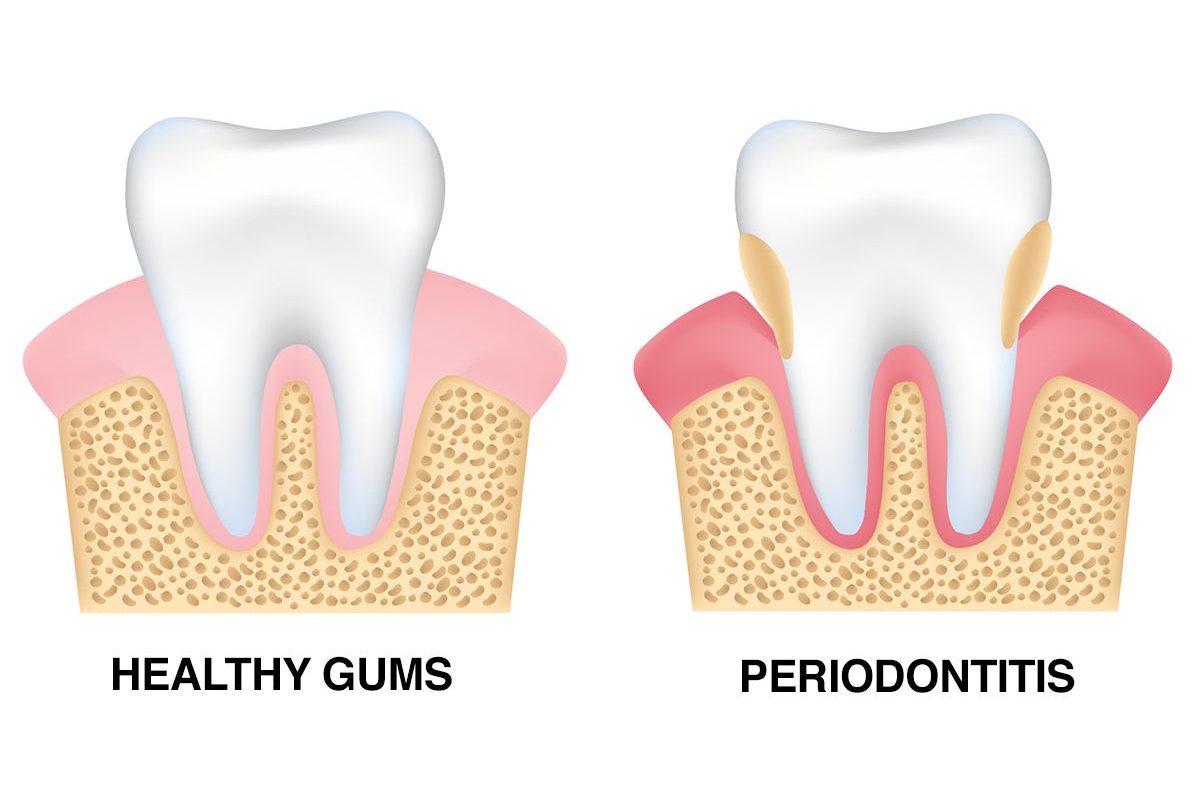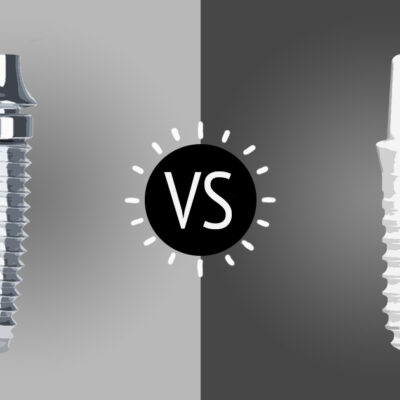Periodontitis is an inflammatory disease that affects the gums and supporting structures of the teeth. The condition is also known as chronic gum disease because it is a long-lasting problem. But there are a number of different types that can be diagnosed. Each type has distinct risk factors and causes, and once you understand those, you can better manage your own risk. Read on to find out everything you need to know about the causes of periodontitis or gum bleeding.
Bacteria and periodontitis
The first thing that we need to understand about periodontitis is the relationship between bacteria and gum disease. Bacteria are naturally present in the mouth, but when they accumulate, they can cause gum bleeding, particularly when combined with a genetic or environmental risk factor. Most of the bacteria found in the mouth are not harmful and in fact are essential for health. However, bacteria such as P. gingivalis and E. coli are responsible for gum issues and can cause tissue damage.
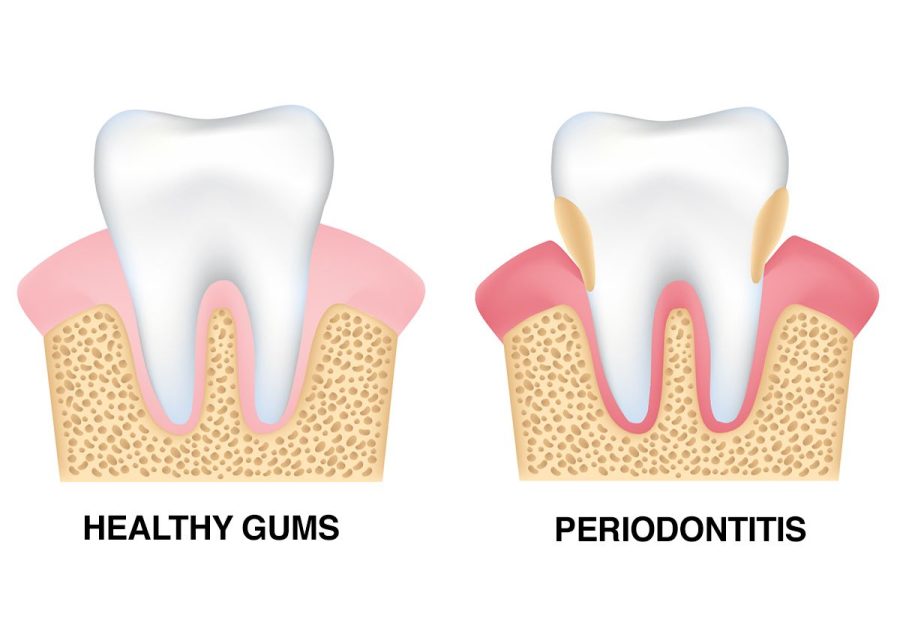
Genetics and risk factors
The exact cause of periodontitis is unknown. However, there are certain risk factors that can increase the likelihood of developing periodontitis, including: People generally start to experience the onset of periodontitis in their 30s and 40s due to changes in the immune system. Certain risk factors also increase with age, including diabetes, smoking, and gum disease.
Recent studies have suggested that there is a genetic link to developing periodontitis. If one or both of your parents had them, you are more likely to develop the condition.
Poor oral hygiene – Poor oral hygiene is one of the most common causes of gum bleeding or infection and can increase the risk of gum disease.
Nutritional deficiency – People with a poor or unbalanced diet are more likely to develop periodontitis.
Medications – Certain medications, including steroids and anti-inflammatory drugs, can increase the likelihood of developing gum issues.
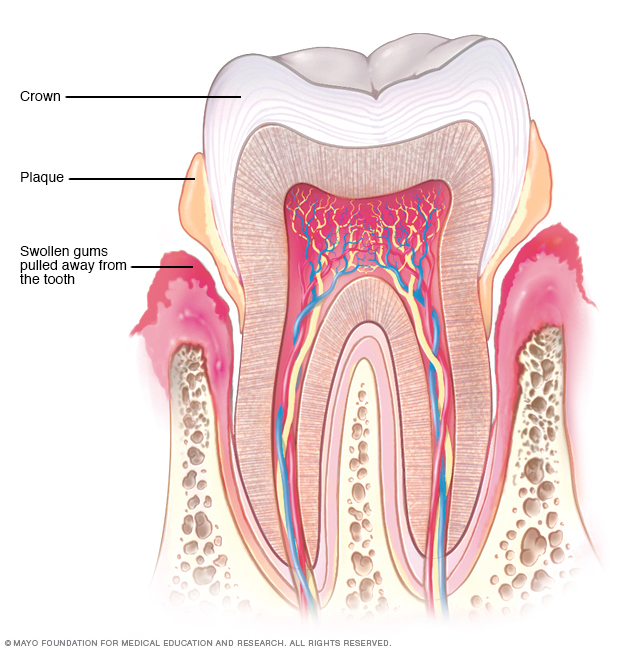
Types of Periodontitis
Aggressive – It is a rare type of periodontitis that can affect young people, particularly those with a genetic link to the condition. It is characterised by aggressive tissue destruction and progression through the stages of chronic gum disease as well as the formation of ulcers.
Necrotising – It is a rare form of periodontitis that has been linked to illegal drugs, such as ecstasy. It is characterised by severe tissue damage and is often accompanied by an infection or gum bleeding.
Periodontitis associated with systemic diseases – Periodontitis can also be associated with other diseases, including diabetes and rheumatoid arthritis.
What are the symptoms of periodontitis?
- Gums that bleed when you brush your teeth or floss
- Bad breath
- Changes in the position of your teeth or loose teeth
- receding gums
- Red, tender, or swollen gums
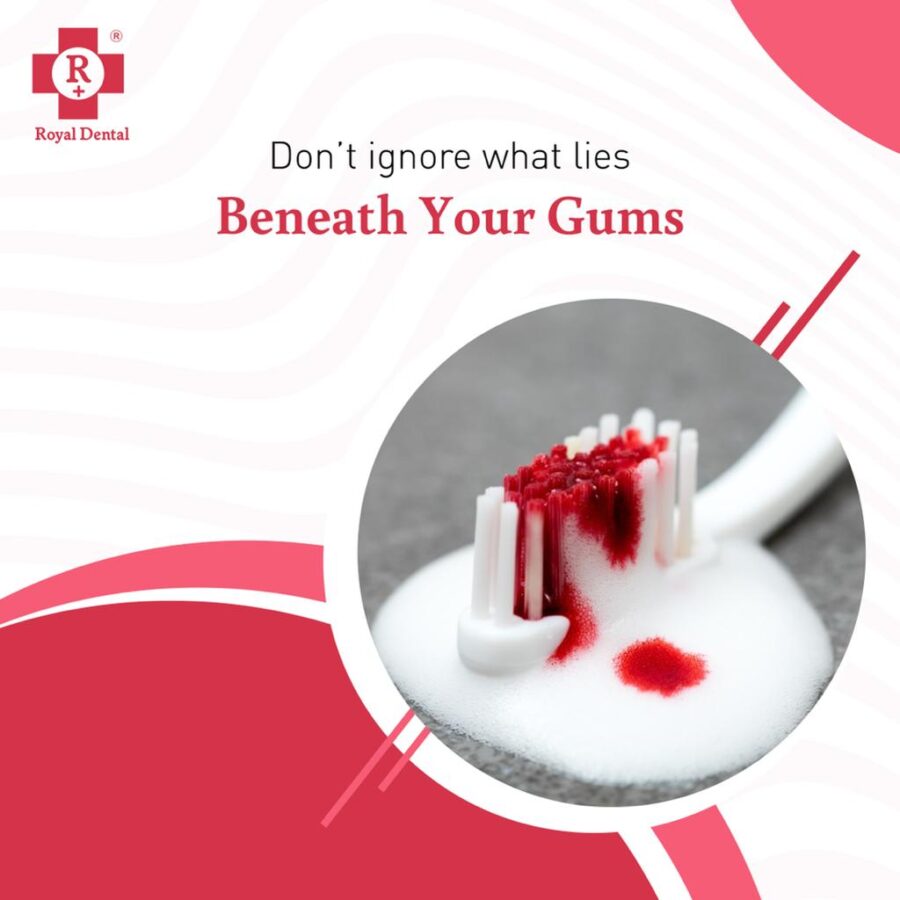
- Buildup of plaque or tartar on your teeth
- Pain when chewing
- Tooth loss
- Inflammatory response throughout your body
Treatment for periodontitis
If left untreated, periodontitis can cause irreversible damage to the teeth and gums. If you notice any symptoms of periodontitis, such as bleeding while brushing or a bad taste in your mouth, you should see your dentist as soon as possible. There are a few ways that your dentist can treat gum disease, including scaling and root planning and periodontal surgery. Scaling and root planning is procedure that scrapes the surface of the teeth, removing plaque and bacteria of the gums.
Conclusion
Periodontitis is common but largely preventable. It’s usually the result of poor oral hygiene. Brushing at least twice a day, flossing daily and getting regular dental checkups can greatly improve your chances of successful treatment for gums and can also reduce your chance of developing it.

